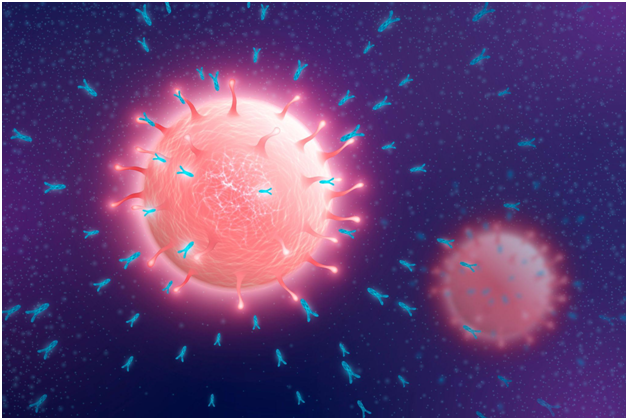The production of human monoclonal mAbs for research and clinical use is nearly related to the construction of phage display technology. APD (Antibody Phage Display) is based on the genetic engineering of bacteriophages and repeated rounds of antigen-guided preferences and phage propaganda.
Its technique permits in vitro choice of mAbs of any specificity, facilitating recombinant production of reagents for use in research and clinical diagnostics and also for pharmaceuticals for therapeutic use in humans.
Physical connections established between the antibody fragments on the outside and the genetic propaganda encoding the displayed protein with the phage and antibody phage display also permit comprehensive studies of genetics and function of antigen-specific mAbs.
Antibody Library Preparation Technique
The APD starts with antibody library preparation, followed by ligation of the VH (Variable Heavy) and VL (Variable Light) PCR product into a phage display vector, culminating in an analysis of clones of mAbs. A huge antibody library and efficient choice are required to isolate specific mAbs from a cloned immunoglobulin repertoire.
The success of a Phage Display Antibody Library is when there is high-quality preparation of RNA from the source choosen. This RNA is reverse transcribed into complementary DNA, which is utilized for PCR for both VH and VL chains of the target antibodies.
Applications of Antibody Phage Display
Phage display technology include wide applications such as epitope mapping, protein-protein interaction studies, recombinant antibody production, drug discovery, and much more. The widespread utility of the Phage Display Antibody Library technology is backed by the research.
● Epitope Mapping
When a specific antigen is recognized by an antibody, the binding region is known as an epitope. The antibodies while being developed require definite knowledge of the antigen epitopes for therapeutics and research usage. The vaccine development has significant usage through epitope mapping as it can help with the elucidation of immune responses.
● Protein-Protein Interaction Studies
Protein-protein interactions mediate every biological process. While the phage display provides the identification of both, novel and known protein binding partners which help in evaluating the specificity of the protein associations.
● Recombinant Antibody Production
The Phage Display Antibody Library is regarded as the superior standard in recombinant antibody production. While there are a large number of screening procedures to get the antibody displaying phages for the target antigen, phages express antibodies specific to the target quickly.
● Drug Discovery
There is a driven approach to the application when drug discovery is considered with Phage Display Antibody Library. Not only are they prominent in identifying peptide ligands for therapeutic targeting, but they also discover target launch points for drug discovery, which proves efficient in understanding the cross-reaction of the biologics with other molecules.
Conclusion
GeNext Genomics is a life science emerging research organization, that strives to provide a one-stop solution to every life science-related protein need. We have a team of professionals and expert scientists who put their efforts into excellence in developing monoclonal antibody contract manufacturing and providing a highly specific Phage Display Antibody Library.



